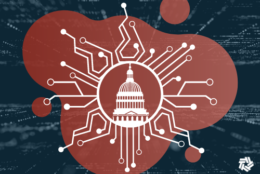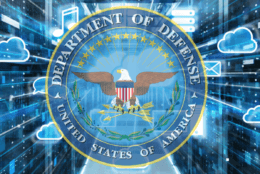Big Data
-
As of July, facial recognition technology is scanning departing travelers in 32 airports and all arriving air travelers.
August 01, 2022 -
The White House and members of Congress are calling for more collection of LGBTQ data by federal agencies. But this is something people have recommended doing for years.
July 22, 2022 -
The Department of Veterans Affairs is postponing the go-live for its new Electronic Health Record at yet another site, as Congress intensifies its scrutiny of the rollout.
July 20, 2022 -
Jarrod Bruner, Capture Program executive in the Office of the Associate Director for Administration, said the U.S. Marshals Service had a problem with its core mission system bigger and more complex than anything they could fix at once.
July 15, 2022 -
Federal data experts say decades of research on sexual orientation and gender identity can point agencies in the right direction on including LGBTQ populations in more surveys.
July 14, 2022 -
Fighting increasingly dangerous wildfires falls on federal, state and local government agencies — each with their own fire mitigation projects and data.
July 06, 2022 -
Patrick Newbold, assistant deputy commissioner and deputy chief information officer at SSA, said meeting with the Baltimore Ravens about how they use their data to drive decisions helped the agency improve its customer experience.
June 30, 2022 -
The innovative world of Internet of Things (IoT) means industry and government can build things better, stronger faster. They can gather more information, and quickly integrate it. However, there is a price to moving that much data around at that speed. It also means keeping pace with the security concerns in a sophisticated, quickly-evolving environment.
June 21, 2022 -
From the distribution of COVID-19 vaccines to personnel overseas, to tracking the air quality at U.S. embassies and consulates, the State Department is looking to make data-driven decisions in all aspects of its mission.
June 20, 2022 -
The Defense Logistics Agency is working to grow an enterprise data management division within the office of its chief data and analytics officer, Lindsey Saul.
June 20, 2022 -
Trust underpins evidence-based innovation, but all parties still need to agree on their definition of trustworthiness.
June 16, 2022 -
Because of the development of quantum computers, keeping our information, financial details and personal secrets protected is at risk today.
June 10, 2022 -
In the year since the Department of Defense Data Strategy was created, the DoD continuously makes strides toward its goal of transforming into a data-centric agency.
June 08, 2022 -
The CDAO team merges major Defense Department's tech efforts, bringing together a range of DoD innovation leaders.
June 08, 2022 -
VA's first medical center to launch its new Electronic Health Record is running into data quality challenges so severe that its inspector general’s office is concerned whether the facility can maintain its hospital accreditation.
June 01, 2022
















